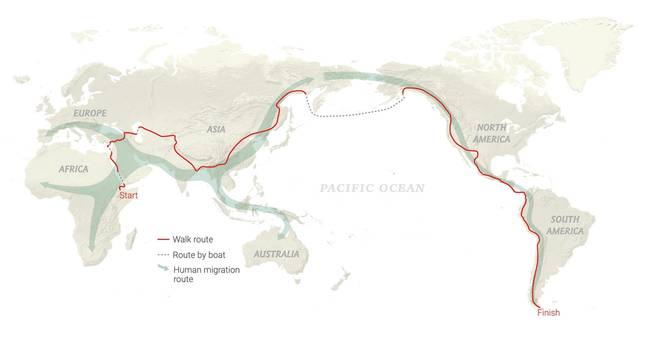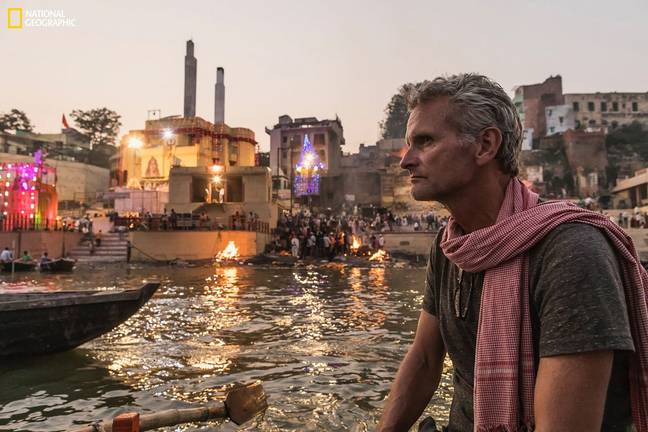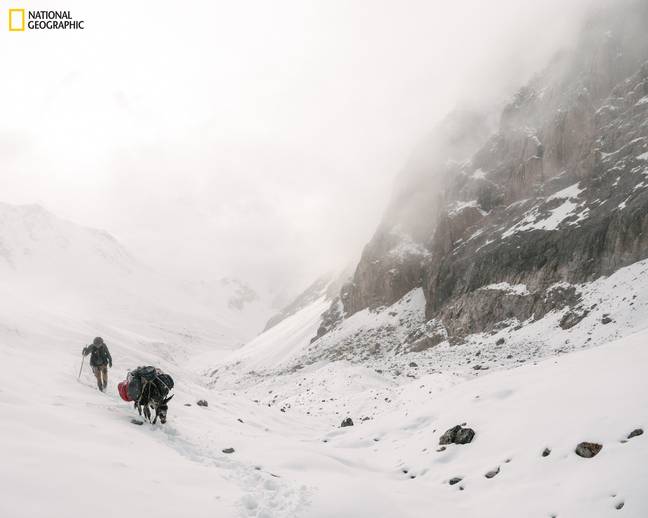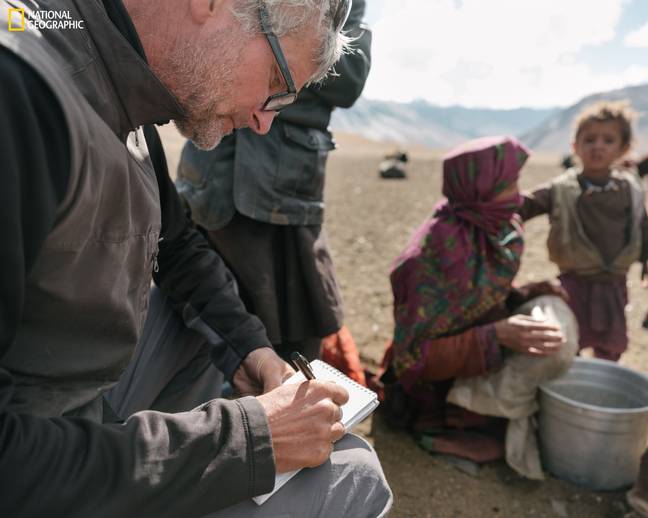When Paul Salopek set off on his incredible 24,000-mile journey around the world, he wasn’t sure what he’d find.
Following in the footsteps of our ancestors, who made their way out of Africa thousands of years ago, the journalist wanted to use the opportunity to tell the major stories of our lifetime, through voices that are rarely heard.
Starting in Ethiopia back in 2013, Paul set off on his journey, trekking through Jordan, Turkey, Bangladesh and most recently China, to name just a few.
In that time, he’s walked thousands of miles and met countless people from vastly differing backgrounds and cultures, who he’s formed lifelong friendships with.
Speaking to UNILAD about his adventure, Paul said it’s these bonds that have given him greater clarity on the world.
“I was raised in another culture other than my own; my parents were from California,” he tells us.
“We went to Mexico when I was six years old, and I spent most of my childhood in Mexican schools, you know, watching Mexican movies, falling in love with the country.
“And so that was really when I think I absorbed the lesson that we’re basically a big, fractious, noisy, quarrelsome family, and as long as you approach it that way, that we’re relatives and cousins, you tend to find a space wherever you go.
“I’m not saying we’re identical, but that’s what’s so great, that’s where a great narrative comes in is.
“You know, when you talk about anything with somebody in Uzbekistan or in London, odds are if you spend enough time, two hours say, they’ll talk about 85 to 90 percent of the same things: who loves me, who doesn’t, etc.

“But what’s different? There’s 7.7 billion unique personalities in the world, and I think that’s where the story resides.
“The real to me interesting story is between the vast commonalities but then the tiny fraction of difference that defines everything, right, defines a personality.
“And there’s no two personalities alike. I’ve met thousands of people on this project, and I met thousands before I did this project, and it’s flabbergasting.
“It’s just, I can never take it as a matter of course, just how incredibly amazing that is.”

Looking at the world around us, though, Paul says he’s noticed a growing disconnect.
The way in which we interact with the landscape around us, whether it’s through the tools we use or the ‘footprints we leave on trails and trading routes’, he says, is ‘vanishing very fast’.
“It’s likely that the flat you’re in now or the vehicle you’re driving is conformed to the needs and mechanics and physics of the machinery needed to build those things,” he says.
“It’s not to you. And I don’t know about you, but I can tell the difference now, having walked so long in the last kind of glimmers of a world that was scaled to our body, where we were like, organically, where we fit in with landscape.

“And no matter what we did to the landscape, we were of it, because it was muscle built.
“That world is vanishing. It’s like the extinction of languages around the world. It’s just, it’s just gone.”
But while Paul admits this is a deeply personal observation and is unlikely to cause anyone to have ‘sleepless nights’, he says ‘there’s a cost to pay’.

Even he now finds himself confused when he returns to ‘modern life’.
He says: “When I come into cities, after long periods and rural areas, I get lost all the time, there’s so many right angles, because nothing in rural countrysides or nature is rectangular, it’s all curvilinear.
“So I bumble around, but also I feel that they’re very strangely insubstantial, that I can put my hand through the walls of skyscrapers. Because they seem just not of the place.”
You can find out more about Paul’s incredible journey here.
Make sure to SHARE this article on Facebook with your best friends!
